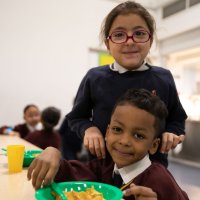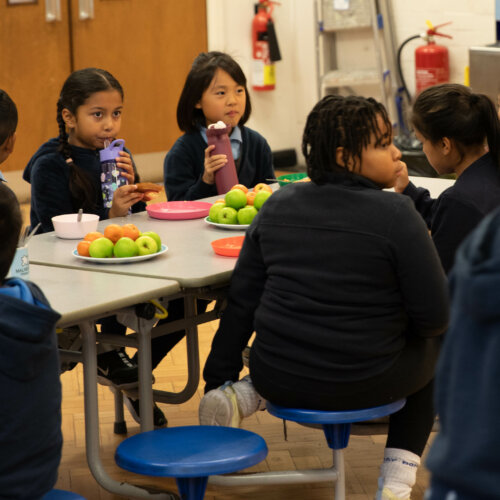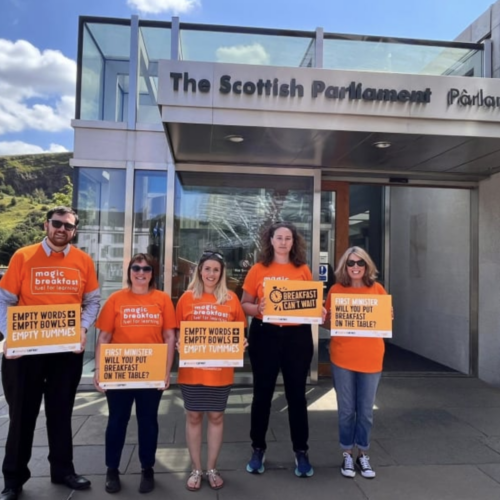The cost-of-living crisis is putting myriad new pressures on working families, as well as exacerbating old ones. Childcare was already out of reach for many before the current crisis, but now low-income families are being squeezed even harder. While childcare decisions might feel like individual-level choices, they have far-reaching impacts for children and their parents.
As our report, Children’s Futures and the Economic Case for Before- and After-School Provision, is released, we reflect on the crucial role that school clubs play in helping families overcome these challenges.
The power of breakfast and activity clubs in educational attainment
Whether feeding a passion, or used to decompress and socialise, extracurricular activities play a key role in children’s learning and wellbeing. Sports, music and drama programmes offer a wealth of benefits – such as improved physical health, boosted confidence and refined social skills – which directly impact classroom concentration and enjoyment.
In the same way, breakfast clubs have many positive impacts on the school day. In fact, research suggests that breakfast club attendance can result in a child making an additional two months of academic progress at Key Stage 1, and have positive influences on attendance, punctuality and behaviour.
The magic of extracurriculars is not accessible to everyone
Despite the profound impact that before- and after-school clubs can have on children’s ability to learn and thrive, prohibitive costs mean that they are inaccessible to many.
This means that children from the most disadvantaged backgrounds face the highest barriers to services that could help them flourish academically.
This is a heart-breaking truth, made worse by the fact that children and young people are all too aware of these barriers, and feel their reality acutely.
If you don’t have enough money then you can’t join anything, because you need to have money.
– YEAR 4 STUDENT INTERVIEWED FOR THE REPORT
The importance of childcare for families
Breakfast and activity clubs also have another function beyond learning and engagement – childcare.
Childcare is often a huge source of stress for parents. The challenge of juggling childcare can leave parents forced to take fewer hours at work, or to take inferior jobs closer to home or their child’s school. In some cases, it even forces parents out of the labour force all together.
This has a hugely negative impact on both the lives of parents – especially those in poverty – and on our national economy, particularly at a time of low growth and limited productivity gains.
For parents that work, a significant portion of any earnings are likely to be lost to childcare costs, something which affects low-income parents particularly harshly.
It’s time for change
2.6 million children are starting their school days too hungry to learn. Students from all walks of life are missing out on activities which inform, shape and support their academic progress. Parents are having to reduce or give up work at a time when the cost of living is rocketing.
It shouldn’t be this way – and it doesn’t have to be.
Swift action is needed, which is why Magic Breakfast and CPAG are calling on the government to invest in breakfast and activity clubs for young people across the UK, allowing working families to access the material and social benefits of a healthy breakfast, functional childcare and enriching activities.
Our report shows that working families can stand to gain up to £1,200 per year in increased earnings and savings if their children have access to fully funded clubs. During an acute cost-of-living crisis such as this, any intervention which frees up parents’ ability to cover essentials like food, housing and energy costs is sorely needed.
Find out more by reading our report
Magic Breakfast recently collaborated with Child Poverty Action Group (CPAG) to produce Children’s Futures and the Economic Case for Before- and After-School Provision. This report highlights specific ways that the cost-of-living crisis is affecting working families, and demonstrates how targeted interventions can make a positive, concrete impact on the lives of low-income parents and their children.






